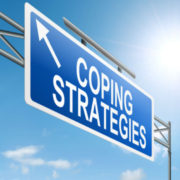Earlier I my life I lived and worked in Japan. I taught English to a group of young men at one of Honda’s subsidiaries, Keihin Seiki, where they produced Honda’s carburetors. It was from these young factory workers that I gained an understanding of how change is slowly and incrementally effected from the bottom up in Japan, a concept called kaizen. By the time a policy or idea gets to the board room, it is at a place of acceptance among the workers, and the decision that is made in the board room is but a formality. This takes time. It is also one of the key reasons Japanese made cars have such a strong reputation for reliability.
How do you tolerate the mismatch of differing communication styles? That feeling that the person in front of you has no idea what you are taking about? Well that’s the $64K question, now isn’t it? In trying to answer this question for myself, I find it helps to remember that there are many different ways that people respond to others.
I was reading an excerpt from an interview given by Dr. Atul Gawande on his book Being Mortal: What Matters in the End, and he commented that:
“People have priorities in their lives besides just living longer and they matter a great deal. The most reliable way to learn what those priorities are is to ask and we don’t ask. The result is that when you don’t ask, the care and treatment that people get is often increasingly out of alignment with their priorities and what really matters most to them.”
What if you were trained to look for the bad?
And what if your brain evolved to look for nothing but the bad?
This time of year there is a lot going on with end-of-summer vacations, children going back to school, some leaving for college, and the gears that must shift as we head into late summer/early fall.
There’s a lot of bravery going on right now. The young kids that must adjust from the sudden loss of limbs from shark bites this past week at Oak Island, North Carolina, and the families of the slain in Charleston, South Carolina, are all having to put one foot in front of the other and keep going. Maybe South Carolina will take a brave look at a sometimes sad heritage, as well as the rest of America, face our violence, and actually do something to change this awful path.
Ever heard of “Theory X & Theory Y”?
First proposed by Douglas McGregor of MIT in 1960, it was one of the most famous management school innovations in business history. It boils down to this: effective managers have an optimistic view of human nature -Theory Y. Ineffective managers think that people are basically unreliable and lazy – Theory X.
According to Barry Schwartz in his excellent book The Paradox of Choice, you become a satisficer. You make choices that are “good enough.”
There are experts, such as psychologist Margaret Wehrenberg, who believe that anxiety and depression should be treated as chronic conditions. Read more
PAGE RUTLEDGE, LCSW, CHt | Couples Counseling
Tel: 910-777-7243
Offices at:
5006 Randall Parkway (close to UNCW)
Wilmington, NC 28403
Free parking at office









